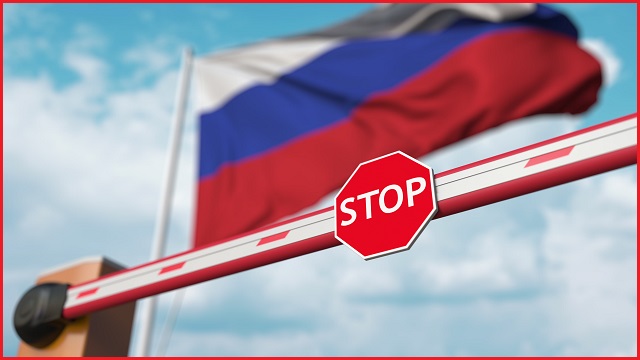Technology companies are pulling their services from Russia en masse in protest against its invasion of Ukraine and have tightened information controls that severely limit the spread of information within the country.
Google and Facebook both said they would stop showing ads in Russia and from Russians to the rest of the world.
“In light of the extraordinary circumstances, we’re pausing Google Ads in Russia,” Google said.
Google had initially banned Russian state media from buying or selling ads but decided to completely remove its advertising services after it was ordered to stop showing ads that the Russian state deemed were pro-Ukraine.
Access to Facebook, along with Twitter and Google-owned YouTube, have been throttled and blocked by the Russian government as it tries desperately to control the narrative about the war being told to Russian citizens.
Facebook’s President of Global Affairs, Nick Klegg, responded to the Russian blocking attempt by saying the social media company would try and do everything it can “to restore our services so they remain available to people to safely and securely express themselves and organise for action”.
Shortly after, Facebook said it was stopping all advertising in Russia and from Russians.
Cultural isolation
While the removal of YouTube and Facebook ads might actually be welcomed by Russian users bypassing national blocks, the suspension of Netflix’s entire service will help impose a cultural severing from the west.
Netflix had already protested by stopping its dissemination of 20 Russian propaganda channels it was required by law to host by law.
But it went one step further this week with a spokesperson saying it has “decided to suspend our service in Russia”.
Video sharing sensation TikTok is continuing to operate in Russia for the time being but has stopped its livestreaming feature after new ‘fake news’ laws were enacted in the country that would see people sharing non-state sanctioned information about the Russian war in Ukraine potentially face 15-year prison sentences.
TikTok said it needed to “review the safety implications” of the new law before it could resume its services.
Just prior to when TikTok began limiting its services, the BBC published a guide – in Russian and English – for how to access BBC News from behind a geofence.
The BBC encouraged the use of open source circumvention app Psiphon, as well as the Tor Browser which can be used to access a dedicated version of BBC’s website.
Video game dsitributors Activision Blizzard, Epic, and Electronic Arts have also pulled sales in the Russian localised versions of their app stores.
No more hardware
Computer hardware is also harder to get hold of inside the invading country with Microsoft, Apple, Samsung, and Dell all stopping new product sales within the Russian Federation.
In a blog post, Microsoft President Brad Smith said the company was “coordinating closely and working in lockstep” with governments to help impose sanctions – including stopping “many aspects” of its business in Russia.
“We believe we are most effective in aiding Ukraine when we take concrete steps in coordination with the decisions being made by these governments and we will take additional steps as the situation continues to evolve,” Smith said.
But there are warnings that completely cutting Russia off from tech made by the US and its allies could help fuel economic rivals like China, which is a technology manufacturing powerhouse in its own right.
Economic sanctions, alongside the removal of PayPal, Visa, and Mastercard, will at least make it more difficult for Russian oligarchs to move money they pilfered from the Russian people out of the country.
Cryptocurrency exchange Coinbase is also getting behind sanctions by blocking access to Russian individuals who are targeted by sanctions.










